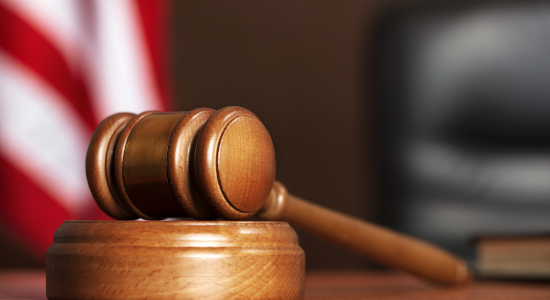
Jan. 18, 2019 – A federal lawsuit filed by individuals in Ashland and Bayfield counties raises constitutional claims against Wisconsin’s criminal justice system, based on delays in providing legal representation while they languished in county jails.
Six individuals filed the lawsuit last week in the U.S. District Court for the Western District of Wisconsin on behalf of themselves and others similarly situated. Craig Haukaas, former Bayfield County District Attorney, is representing the plaintiffs.
The class action notes that all individuals facing jail time for alleged crimes have a constitutional right to effective assistance of legal counsel. They also have a right, under the Sixth Amendment to the U.S. Constitution, to a speedy and public trial.
“It is well-settled law that the State must promptly provide effective legal representation for indigent criminal defendants,” the lawsuit states. “However, throughout Wisconsin, these defendants are simply not being promptly appointed the effective legal counsel mandated by the United States and Wisconsin Constitutions.” The plaintiffs assert that “the system for indigent defense in Wisconsin has reached a state of crisis.”
Major Delays
The lawsuit against the State of Wisconsin alleges that the plaintiffs sat in county jails between 47 and 75 days before a public defender was appointed to represent them.
Kelli Thompson, director of the State Public Defender’s Office, is a named defendant along with Gov. Tony Evers. They are named in their official capacities for the state.
The lawsuit says that state public defenders (SPDs) have significant caseloads, “in some cases staggering,” which can preclude representation that is constitutionally required.
In addition, the rate paid to private bar attorneys to take overflow and conflict cases – the private bar handles about 40 percent of the nearly 140,000 cases per year – is so low that many attorneys have simply stopped taking them, especially in rural areas.
Private bar attorneys are paid $40 per hour to take SPD appointed cases, regardless of whether they are felony or misdemeanor cases. They get $25 per hour for travel time.
This hourly rate is the lowest in the country for states that use private bar attorneys to assist public defenders, and has remained largely unchanged since 1978, when the Wisconsin Legislature set the private bar rate for SPD appointments at $35 per hour.
The legislature, in 1992, increased the rate from $35 to $50 per hour for in-court time, $40 for out-of-court time, but reduced it to a uniform $40 per hour ($25 per hour for travel time) in 1995, where it stands today despite numerous attempts to increase it.
State Bar’s Position
The State Bar of Wisconsin has worked for decades to raise the $40 per hour rate, repeatedly asking the legislature. Just last year, the State Bar supported a petition to the Wisconsin Supreme Court, which asked the court to raise the hourly rate to $100 per hour under its inherent authority to ensure the effective administration of justice.
Failing to raise the $40 rate – which can’t even cover overhead expenses for many private attorneys – would exacerbate a “constitutional crisis,” petitioners argued. They also said the court could resolve the issue before expensive litigation commences.
The supreme court declined to raise the SPD rate, but raised the rate that court-appointed lawyers are paid from $70 per hour to $100, which it has the power to do under the supreme court rules.
At least one jusice recognized that the $40 SPD rate is “abysmal,” but members of the court questioned whether it had the authority to appropriate money, and also noted that the court normally resolves constitutional issues through “cases and controversies,” not through petitions to change court rules.
In a final order issued last summer, the court urged the legislature to take action:
“We hope that a confrontation in the form of a constitutional challenge will not occur and trust that the legislature will work with the courts, the SPD, the petitioners, the counties, and other justice partners to ensure adequate funding for the SPD that is urgently needed to forestall what is clearly an emerging constitutional crisis.”
Now that the federal, class action lawsuit has been filed, the U.S. District Court for the Western District of Wisconsin will have a “case and controversy” to consider.
The lawsuit asks the federal district court based in Madison to enter an injunction that would enjoin the state from “continuing to violate the rights of indigent defendants by providing constitutionally deficient representation.”
It also asks the court to approve and monitor “a plan to develop and implement a statewide system of public defense” that complies with the state and federal constitutions. In addition, plaintiffs want the state to establish minimum standards of experience to represent indigent defendants, with uniform workload standards.
The State Bar is not a party to the case. State Bar President Christopher Rogers said he hopes the $40 rate issue can be resolved through the state budget process.
“We’re hopeful this issue will be addressed in the upcoming state budget and absolutely urge the legislature to take the necessary action to ensure all citizens are given adequate representation under the Wisconsin and U.S. constitutions,” he said. "The time is now."
